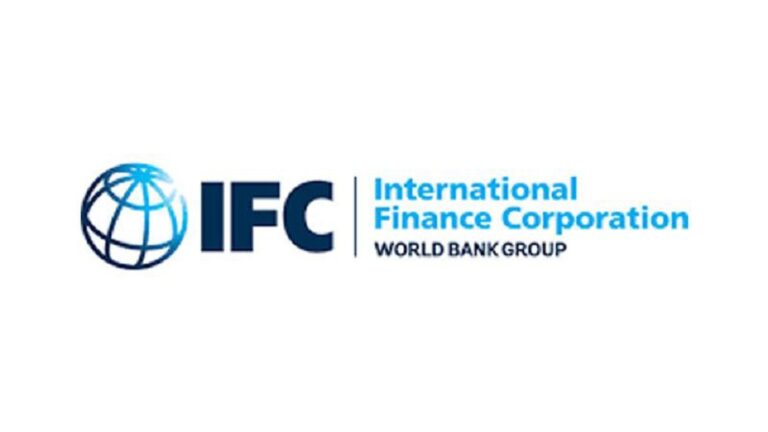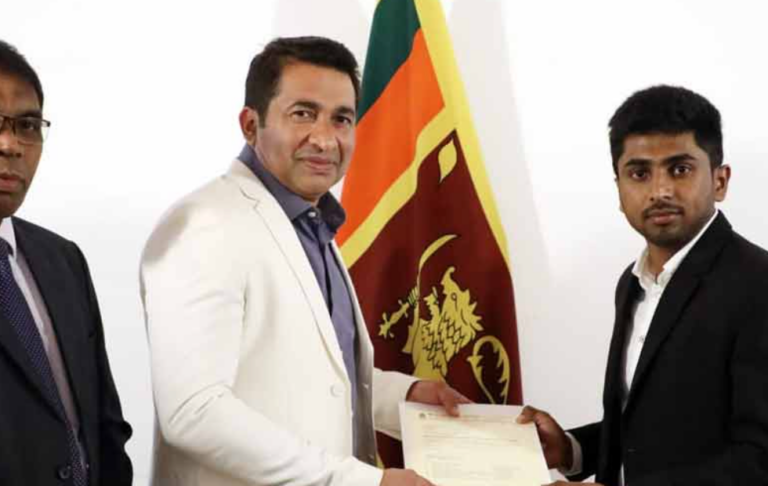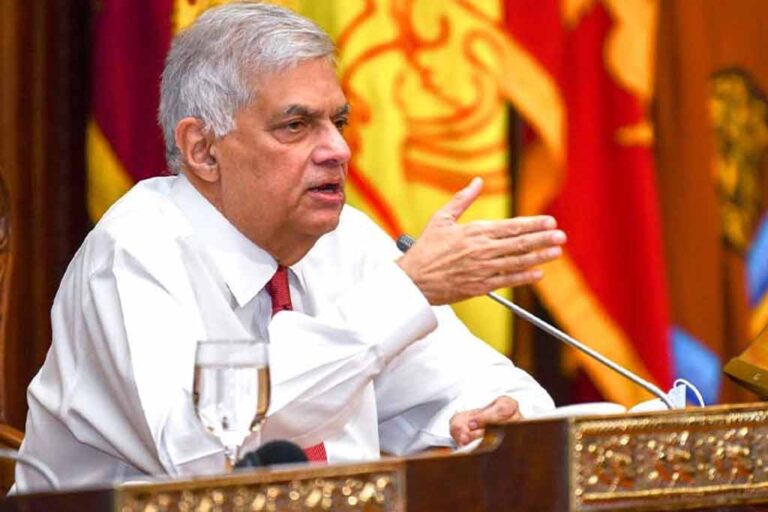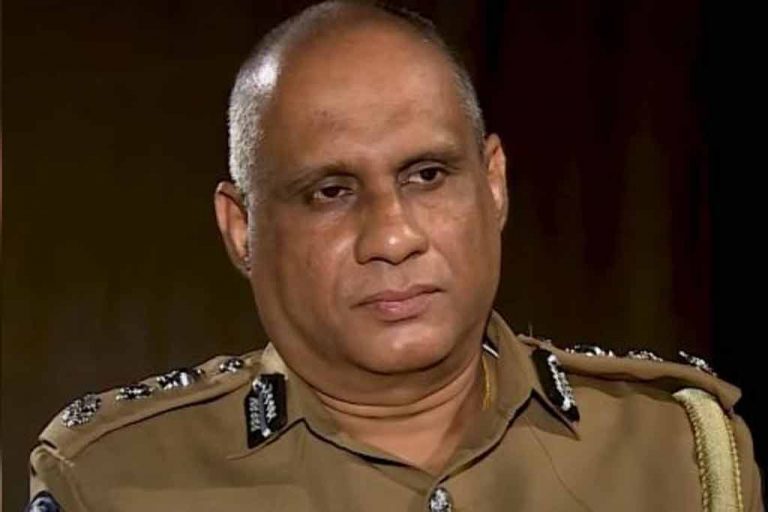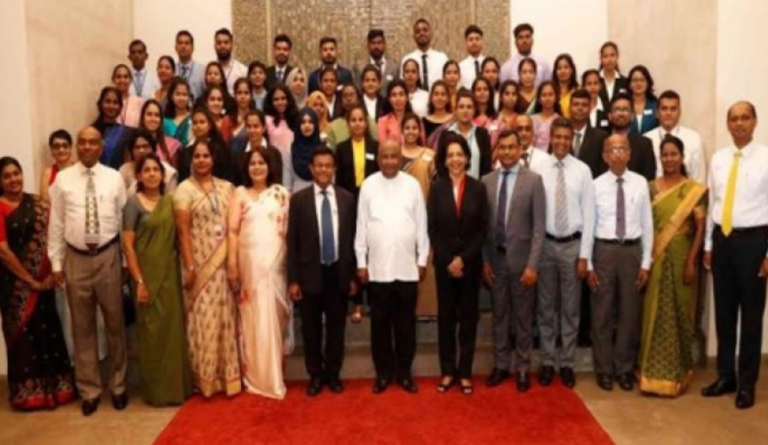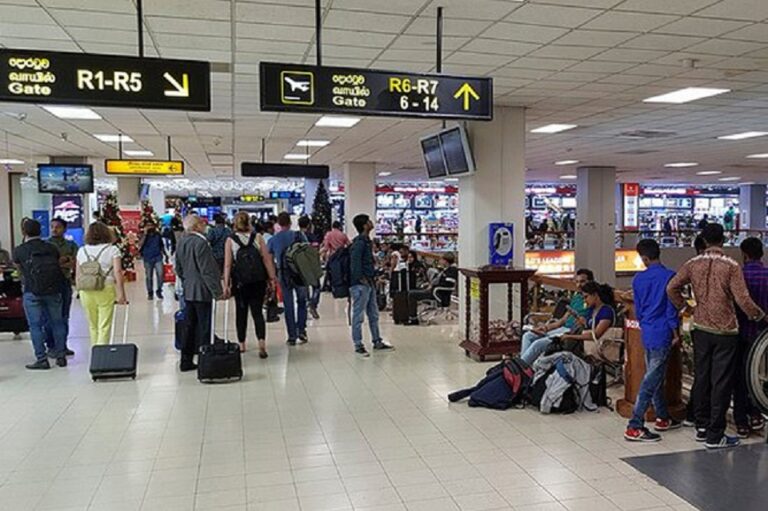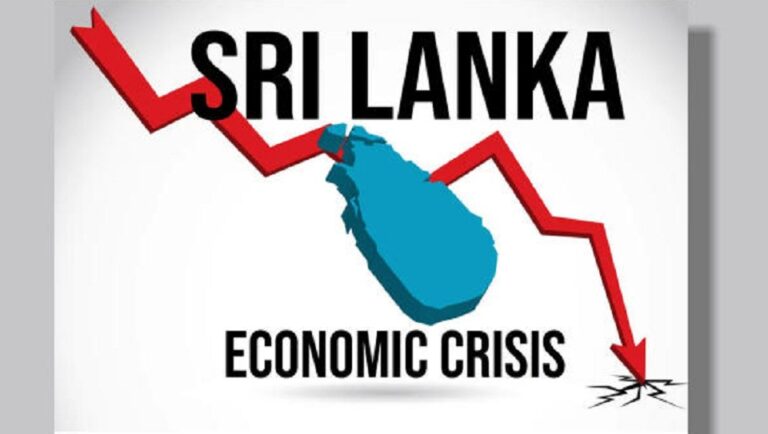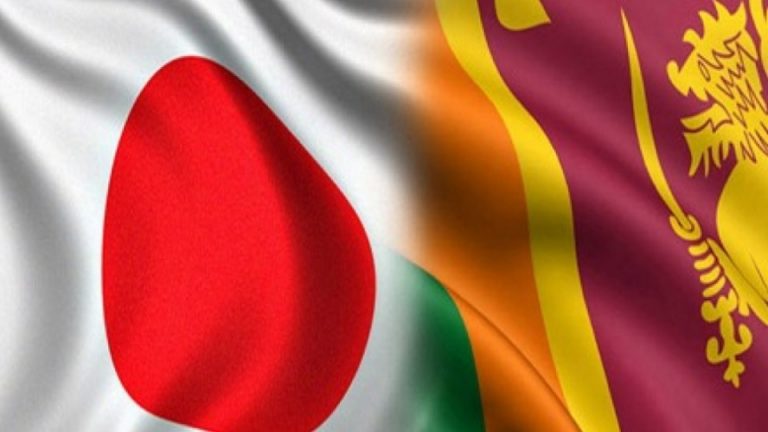The US$ 400 million cross-currency SWAP” for four Sri Lanka banks extended by the International Finance Corporation (IFC) of the World Bank is only to trade cash flows in one currency with that of another IFC’s Country Manager for Sri Lanka, Alejandro Alvarez de la Campa disclosed.
He has confirmed that there’s no new Forex inflow due to the SWAP as predicted by some economic experts and state officials.
Under the facility, IFC will provide up to $400 million over one year to Commercial Bank of Ceylon (CBC), Nations Trust Bank (NTB) and Sampath Bank to help facilitate the imports of essential goods.
It has no impact on Sri Lanka Forex market or foreign reseves of the the Central Banka he pointed out.
Buit addressing the ceremony to mark the signing of IFC’s cross currency swap, the Central Bank Governor Nandalal Weerasinghe said that while the forex market had dried up at the time, the situation is now steadily improving.
“I think it’s a good time that IFC has come on board and support this facility that will provide a lot more confidence to the forex market, in addition to the progress that we have made so far,” he said.And it would he said instill more confidence into the domestic market.
Several economic experts said that Cb governor uttering nonsense as the rupee has been defended from both appreciation and depreciation via central bank’s moral suasion, which has compelled the market to trade forwards.
The rupee forwards have also been capped by the central bank from time to time, dealers have said.
These include food items, medicines and fertilizers – most of which are traded in US dollars. The facility will further support the banks financing of exports of goods and services for their clients while allowing them to make USD-denominated debt repayments.
However country head of IFC noted that IFC first conceived of using this innovative approach last year – at a time when Sri Lanka was cut off from international financial markets due to high debt, and when it was brought home to all that foreign currency was vital to help the country import the goods it needed.
The move comes as Sri Lanka continues talks with the International Monetary Fund and other countries over Sri Lanka’s debt.
The country of 22 million people has been facing its worst economic crisis in seven decades, with Sri Lanka suspending payment on most foreign debt since April last year. Simply put, the government ran out of the foreign exchange needed to cover food and fuel imports and to service its external debt.
He said supporting the private sector with critical financing will contribute to the country’s urgent need to stabilize its economy.
“It is not just about supporting businesses and helping facilitate the imports of essential goods. It’s also about the signal this sends to the market. It should send a strong message to the investor community, and hopefully spur more capital inflows – all of which would be critical for a resilient recovery of the economy,” he pointed out.
For Joon Park, IFC’s Portfolio Manager, Financial Institutions Group South Asia, delivering on the facility “wasn’t a smooth ride as it took longer than expected due to the ratings downgrade of the sovereign and the corporates.”
“But here we are today. And with this official signing, we expect this financing to enhance confidence within the investor community, attract fresh capital inflows and support a broad range of needs of families and businesses,” he said.
“Through trade lines, we also plan to support essential goods imports, and further assist our client banks with other long-term funding and advisory services in the future.”
IFC local head contradicts CB heads view on US$ 400 million SWAP
A new chairman appointed for the National Youth Service Council
Pasindu Gunaratne has been appointed as the new chairman of the National Youth Service Council (NYSC).
The Minister of Youth and Sports Mr. Roshan Ranasinghe stated that this appointment was made by expressing strong confidence in Pasidu Gunaratne’s leadership abilities and commitment to empowering the youth.
Pasindu Gunaratne, a 25-year-old civil engineer, is currently pursuing a bachelor’s degree at Sabaragamuwa University in Sri Lanka. An alumnus of the Royal College of Colombo, Gunaratne has been recognized for his commitment to community service and youth development. He is currently the President of the Colombo 07 Lions Club where he has made a significant impact on the lives of the community.
Youth and Sports Minister Roshan Ranasinghe says Pasindu Gunaratne as the new chairman of the NYSC will lead the mission to create an environment that empowers and supports the youth of Sri Lanka and creates opportunities.
The Minister claims that his leadership will be the decisive factor in the implementation of innovative projects and initiatives that will lead them to a successful future by nurturing their abilities at a time when the country needs the thought and labor contribution of the youth, especially during the economic crisis and socio-political renaissance.
Sri Lanka Original Narrative Summary: 18/03
- CB Governor Nandalal Weerasinghe says the LKR could soar past Rs.1,000 per USD if the debt is not properly managed: LKR depreciates by Rs.3.89 (1.1%) from 346.33 to 350.22 against the USD: some banks quote 355.00 per USD: LKR said to be trading in “grey market” at over 380.00 per USD.
- President Ranil Wickremesinghe, a distinguished old boy of Royal College watches the 2nd day of the 144th Battle of the Blues cricket match between Royal College and S. Thomas’ College: Royal College Principal R M M Rathnayake also joins him.
- India’s Foreign Minister Dr S Jaishankar inaugurates world renowned Architect Geoffrey Bawa’s exhibition at the National Gallery of Modern Art in New Delhi: says “when I think of Sri Lanka, the names, images, associations, Geoffrey Bawa is a figure that very naturally comes to mind”.
- CB Governor Nandalal Weerasinghe says “some USD 400 mn is expected as the 1st tranche of the IMF bailout, which is due on 20Mar’23”: also says with that, exporters will receive foreign exchange on a priority basis.
- CB data shows 1,127,758 Sri Lankans have left the country in 2022 with a monthly average of about 94,000 while only 27.6% of total departures have left for foreign employment purposes: 911,757 passports issued during the year.
- Analysts express alarm over the staggering Rs.121 bn that was “printed” by the Central Bank on 15 Mar 23, even though the Govt and CB has said no money is now being printed after the IMF Staff Level Agreement was reached in end Sept’22.
- Justice Minister Wijeyadasa Rajapakshe says some police officers have falsely arrested persons on drug-related offences: alleges the substances they have recovered from the suspects have not been narcotic drugs: asserts “genuine arrests have been less than 1%”.
- State Minister Shehan Semasinghe insists the Govt has no intention of laying off state sector employees, yet: asserts the public are concerned about the efficiency of a few workers in the Govt sector: however, analysts claim if the Govt is to achieve the IMF’s fiscal targets, it will inevitably have to reduce the wage & pension bill.
- Chinese Embassy in Colombo donates dry rations worth Rs.100 mn to 15,000 families, in line with the upcoming Ramadan and Sinhala & Tamil New Year: provisions distributed to needy families via temples, kovils and mosques.
- Govt decides to decommission the Batticaloa International Airport in the Eastern Province as it is not up to international standards, costs approximately Rs.15 mn a month to maintain, and does not earn any significant revenue: the airport was opened on 25 Mar’18.
President to form a committee to recommend suitable government hospitals for clinical training for medical students
A committee will be formed by President Ranil Wickremesinghe to identify suitable government hospitals as teaching hospitals to provide clinical training for Medical Students enrolled at the General Sir John Kotelawala Defence University (KDU), Dr. Neville Fernando Hospital, Lyceum Campus and other universities in Colombo, Kalutara, Gampaha, Kurunegala and Polonnaruwa, without hampering the training of students in State Universities.
Accordingly, State Minister of Health Dr. Seetha Arambepola will be appointed as the Chairperson of the aforementioned Committee, while other appointed members will include Additional Secretary to the Ministry of Health Dr. R.M. Saman Kusumsiri Ratnayake, Additional Secretary (Medical Services) of the Ministry of Health Dr. A.K.S. de Alwis, Chairman – University Grant Commission Senior Prof. Sampath Amarathunga, Senior Consultant Surgeon Prof. Mohan de Silva, Professor in Surgery, Faculty of Medicine USJP Prof. Bawantha Gamage, Senior Consultant Orthopaedics & Trauma Surgeon Dr. Narendra Pinto, Dean -, Faculty of Medicine – KDU Prof. Namal Wijesinghe, President of SLMC Prof. Vajira Dissanayake, President of GMOA Dr. Darshana Sirisena, Executive Director -, University Hospital KDU Prof. J. Balawardane and Director Nursing (Medical Service) – Ministry of Health Mrs. R.L.S. Samanmali.
The Committee will be responsible for studying, reviewing and identifying suitable government hospitals to function as Teaching Hospitals to provide clinical training for Medical Students enrolled at the KDU, Dr. Neville Fernando Hospital, Lyceum Campus and other universities in Colombo, Kalutara, Gampaha, Kurunegala and Polonnaruwa. The Committee is also expected to make recommendations for the necessary developments to upgrade the hospitals identified for the provision of such training and submit a report on the findings and recommendations of the Committee within a period of eight (08) weeks.
Controversy Arises Over Service Extension of C.D Wickramaratne and Appointment of New IGP
A letter sent by the Inspector General of Police C.D. Wickramaratne to the Secretary of the Ministry of Public Security with a copy to the National Police Commission is currently circulating in some media and social media.
In the same letter, along with the initial investigation report conducted by the Police Special Investigation Unit regarding the amount of rupees one crore seventy eight lakh fifty thousand rupees found there when the militants took over the President’s House at Colombo Fort during the last People’s protest, the charge sheets against a group of officers including Senior Deputy Inspector General of Police Deshbandu Tennakoon.
There are two dramatic issues related to this circulating article.
The first of which is that this letter is circulating in the media and social media, but this has not yet been received by the Secretary of the Ministry of Public Security to whom it refers. Accordingly, it is clear that the Inspector General of Police CD Wickramaratne has forwarded this to the media even before going to the duty reference due to some urgency. This is not another emergency, it is the news from the day before yesterday (16) that he will not get the extension of service he was hoping for and that Senior DIG Deshbandu Tennakoon will be appointed to the position of IGP.
LNW reported in an earlier news that C.D. Wickramaratne, hoping for an extension of service for another year, sent requests after requests to the political authorities asking them to allow him to serve as the Inspector General of Police next year as all the three seniors below him have been charged with various charges. But that hope of Wickramaratne has been completely broken by yesterday (17).
We have already reported that no approval has been received for giving him a service extension and President Ranil Wickramasinghe has also approved the appointment of Deshabandu Thennakone as the Inspector General of Police.
Under such a situation, Inspector General of Police CD Wickramaratne has requested an extension to stay for one more month in the office of the Inspector General of Police, which he is currently using even after his retirement date. It is also stated that he has requested to use a jeep and a car belonging to the police department which he is currently using for another 6 months. It was also reported that the Inspector General of Police had released his letter to the media when the Ministry of Public Security had given approval to those requests considering his security issues.
C.D. Wickramaratne became the Acting Inspector General of Police earlier because the then Inspector General of Police Pujith Jayasundara went on compulsory leave after the Easter attack. After the end of the tenure of Pujith Jayasundara, Wickramaratne assumed the position of Inspector General of Police without the acting part from November 27, 2020. In fact, he has also received a bonus period for the post of Inspector General of Police.
But when he turned 60, instead of giving the position to the next deserving person and leaving in a dignified way, he requested the authorities to allow him to spend the next year as the Inspector General of Police, saying that there were various investigations against all the three senior officers after him. The media had also reported that he went after various bosses including former authorities to make this request.
When all that failed, IGP Wickramaratne filed a charge sheet against the officer recommended for the position of IGP after him and sent it to the ministry secretary on the day his retirement and related privileges were approved. Also sending photos of the letter to a group of media friends before sending it to the Ministry Secretary.
The second story here is that if an investigation is required against Deshbandu Tennakoon, he replied to a letter received on February 09 on March 17, when his retirement was approved yesterday. It has also been sent to the media in advance.
The post of Inspector General of Police is not an easy pass. Only 35 people have received it so far. A person must have the necessary discipline to hold such a position as well as to leave it. But even after CD Wickramaratne’s age, it seems that there is an insatiable desire to hold this position.
Parliament of Sri Lanka launches a Parliamentary Internship Program
arliament of Sri Lanka with the support of National Democratic Institute (NDI) and USAID launched a parliamentary internship program, providing young professionals and students with practical experience in policy development and public service.
The program was launched on March 1 in Parliament under the patronage of Speaker Hon. Mahinda Yapa Abeywardena, and Secretary General of Parliament Mr. Dhammika Dasanayake, Chief of Staff and Deputy Secretary General Mrs. Kushani Rohanadeera and Assistant Secretary General Mr. Tikiri Jayathilaka, Senior Resident Country Director of the National Democratic Institute (NDI) Mrs. Thusitha Pilapitiya and a group of officials were present. The Hon. Speaker delivered the keynote speech at the inauguration.
Following outreach efforts to all the national universities in Sri Lanka, a group of interns was carefully chosen from the eight universities who responded. Accordingly, eight state Universities, namely, Colombo, Sri Jayawardenapura, Kelaniya, Peradeniya, Rajarata, Jaffna, Ruhuna, and Sabaragamuwa have collaborated for the internship program with a group of selected 35 interns.
The program’s selection criteria and structure ensure a comprehensive and tailored experience, with the curriculum designed to develop skills and knowledge for different career paths. NDI, in collaboration with the parliament, conducted a three-day residential orientation program aimed at providing a deeper insight into the intern role. The program featured several sessions covering legislative development, engaging with Parliament, and various modes of interaction with Parliament. The heads of departments and sections of the Parliament conducted the program. The program concluded with a recap and evaluation session by students, followed by an open discussion where interns had the opportunity to raise questions.
Following a three-day orientation program, the interns have been allocated to their respective departments, and throughout their internship period, they will receive hands-on working experience with the Parliament of Sri Lanka.
The program’s curriculum promotes inclusivity, diversity, and skill development for different career paths. The initiative aims to create goodwill ambassadors for parliament, address the trust deficit between parliament and youth, promote democracy, and educate young people about Parliament of Sri Lanka. The program highlights the Parliament’s commitment to the Open Parliament Initiative and aims to address the trust deficit between Parliament and youth while safeguarding democracy.
SL tea industry gains momentum with exports up and drop in volume
The tea industry ganis momentum in this year with mixed results in February which saw lower export volumes, but with marginal increase returns, brokers said.
Sri Lanka’s tea exports in February have enjoyed a massive rise in FOB Rupee value from a year ago due to depreciation whilst volume has been lower, according to Forbes and Walker Tea Brokers.
Tea exports in February totalled 18.55 million kilos, down by 2.59 million kilos from a year ago.
Main categories of Bulk Tea and Packeted Tea have shown a decrease, whilst Tea Bags have recorded a marginal increase when compared to the corresponding month of 2022.
The FOB value of Rs. 2,040.25 per kilo in February was a significant increase of Rs. 1,077.98 per kilo compared to Rs. 962.27 per kilo in February 2022The FOB value of $ 5.61 reflects an increase of 82 cents from a year ago.
The country’s tea exports in January2023 fell by 3.26 million kg to 17.56 million kg compared to 20.82 million Kg a year earlier.
However, the earnings in January increased to $ 99.56 million up from $ 91.93 million in the corresponding period last year.
When analysing the main categories of export Forbes and Walkers said bulk tea, packeted tea and tea bags had shown a decrease compared to the corresponding period a year earlier.
January-February 2023 cumulative exports totalled 36.11 million kilos, down by 4.42 million kilos from the corresponding period of last year.
Main categories of Bulk Tea and Packeted Tea have shown a decrease, whilst Tea Bags have recorded a marginal increase when compared to the corresponding period of 2022.
The FOB value of Rs. 2,047.59 per kilo reflects a significant increase of Rs. 1,092.03 as against Rs. 955.56 achieved during January-February 2022.
Forbes said all main categories FOB values show a positive variance in USD terms, when compared to the corresponding period of 2022.
It said Türkiye has emerged as the No. 1 major importer of Ceylon Tea with an increase of 139% YoY in January-February 2023.
Iraq has secured the second position followed by Russia having decreased its imports YoY by 37% and 25% respectively.
UAE has moved down to the 4th position having decreased imports 11% YoY. Azerbaijan has remained as the 5th and shows a decrease of 28% YoY in imports during January-February 2023. Other notable importers are China, Saudi Arabia, Libya, Jordan and Iran.
Imports from destinations such as Libya and Iran have decreased by a significant 51% and 50% respectively YoY, meanwhile exports to Japan (57%), Lebanon (213%) and Belgium (115%) have shown significant gains.
Tourist arrivals surpass 50,000 mark for the first 13 days of March 2023
Sri Lanka is expecting 1.55 million tourists in 2023 led by visitors from India, Chairman of Sri Lanka Tourism Development Authority Priyantha Fernando revealed.
“SLTDA is targeting almost 260,000 India arrivals this year,” Fernandosaid adding that with the Chinese traffic opening up this month there will be further increases.
He noted that the authority is expecting 1.55 million tourist’s arrivals this year. We ended with 102,545 tourists in the month of January 2023.”
Sri Lanka is witnessing a steady inflow of international tourist arrivals for the month of March, with the arrivals crossing the 50,000 mark, as of March 13.
The provisional data from the Sri Lanka Tourism Development Authority showed that for the first 13 days of March, the island nation welcomed a total of 53,838. This brings the cumulative arrivals for the January 01 to March 13 period to 264,022.
When compared with the same period, last year, the inflow of international visitors has expanded by about 15 percent.The daily arrival average for the first two weeks of March has improved to 4,141.
The Russian Federation tops the list as the largest tourist traffic generator, accounting for 24 percent of the total arrivals. Ranking second is India, contributing to 14 percent of the tourist arrivals.
Ranking third is Germany, bringing in 8 percent of the total number of international visitors. The United Kingdom dropped to fourth place, from third and contributed to 7 percent of the total tourist arrivals.
.In the first week of February 2023, Sri Lanka had received 18,000 tourists,Priyantha Fernnado said, adding that in 2019, before the Coronavirus crisis hits, Sri Lanka welcomed 1.9 million tourists.
In that year Sri Lanka welcomed 355,002 tourists from India, 198,776 from the UK and 167,863 from China.Indian tourists are expected to spend about 1,850 dollars per person in Sri Lanka, he said.
However, some tourists spend much more, including in the duty free sales, he said.Authorities had allowed tourists to bring up to 10,000 Indian rupees and spend the money in Sri Lanka he claimed. .
“Definitely that is going to help tourism as well as and now Indians get good value for money 4.70 for 1 rupee,” Fernando said.Russians who have trouble with Ruble, may also be able to bring Indian rupees, he said.
In December 2022 and January 2023 Russia was a top generation market. Last December Sri Lanka got 91,961 tourists of which 19,963 were from Russia. In January 2023 out of a total of 102,545 tourists, 25,254 were Russians.
Russia as well as India, Germany and UK are expected to bring most of the tourists to Sri Lanka in 2023, he said.In 2019 Sri Lanka received 134,899 visitors from Germany, making it the fourth largest generating market, after India, UK and China.
Sri Lanka’s economy shrank 7.8% in 2022 with the financial crisis
Sri Lanka’s economy shrank 7.8% in 2022 from the previous year, government data showed on Wednesday, as the country struggled with its worst financial crisis in more than seven decades.
The island’s fourth-quarter GDP contracted 12.4%, according to the figures.Sri Lanka’s growth is expected to shrink by 3% this year, Moody’s Investors Service said on Monday but growth is expected to rebound in 2024.
Economic mismanagement coupled with the impact of the COVID-19 pandemic left Sri Lanka severely short of dollars for essential imports at the start of last year tipping the country into the worst financial crisis since Independence from the British in 1948.
Sri Lanka is waiting for a US $2.9 billion bailout program from the International Monetary Fund (IMF) to be finalised on March 20.
“These numbers are broadly in line with expectations. In the last three months of 2022 Sri Lanka was hit by very high inflation, fuel shortages and high interest rates,” said Sanjeewa Fernando, Senior Vice President Research at Asia Securities.
“For the rest of this year, with IMF funds expected, the central bank should be able to keep the currency strengthened, eventually reduce interest rates, and continue to see inflation ease.”
The state-run Census and Statistics Department said that the agriculture sector shrank 4.6%, while industries contracted 16%, and services dropped 2%, from a year earlier.
The gradual recovery in economic activities which was observed in the year of 2021 when compared to the year 2020, along with the reducing of the COVID-19 pandemic, reversed the direction of performance of many economic activities and resulted in contraction of the whole economy.
This was mainly caused by the deepening of the economic crisis and youth and social unrest began in early part of the year 2022.
In addition, frequent power disruptions, shortages in fuel, raw materials, foreign currency which affected in making supply chain disruptions, amidst price escalations in both domestic and global markets, affected adversely to the whole production process of agriculture, industry and services.
The Agriculture sector recorded a contraction during 2022, owing to shortages in agricultural inputs, particularly fertilizer and agrochemicals, increased cost of inputs as well as fuel shortages.
As well the industry sector as a whole reported significant contraction due to the subdued performance in manufacturing and construction activities.
Scarcity of raw materials, high input prices, import restrictions, prolonged power disruptions, fuel shortage, foreign currency shortage, deterioration of purchasing power parity of consumers have been caused to this contraction.
Meanwhile, the services sector witnessed a marginal shrinkage in the year of 2022 along with the contraction in the agriculture and industrial activities.
During the year 2022, the depreciation of the Sri Lankan Rupee at a notable rate, increase of interest rate to a high rate, supply side disruptions happened in both locally and globally, administrative price adjustments have been caused to record a high inflation domestically and as a whole the Sri Lankan economy reported a slower performance during the year 2022.
Japan contributes US $1.8 million to provide essential services for SL children
The Government of Japan has provided a new contribution of over US$1.8 million to UNICEF’s emergency response for the most vulnerable children in Sri Lanka.
The new contribution will enable over 600,000 children to access clean water, good hygiene and sanitation, and treatment for malnutrition.
Sri Lanka faces an economic crisis which is disproportionately affecting the poor and vulnerable households, with dire implications for children, the UN organization said.
Access to a nutritious diet has emerged as a potent threat to children. The practice of proper hygiene through handwashing with soap has been identified as inconsistent especially among the most vulnerable, further compounding the situation of children.
MIZUKOSHI Hideaki, Ambassador of Japan to Sri Lanka, said, “the Government of Japan has decided to provide additional humanitarian assistance to Sri Lanka in this critical situation.
With this latest contribution, the total amount of assistance provided by the Government of Japan through UNICEF has exceeded US$ 3.8 million since the beginning of the economic crisis last year. Japan continues to stand by and support Sri Lanka.”
UNICEF has remained agile in its work to address the needs of children in Sri Lanka and ensuring that the most vulnerable and their families are cushioned from the worst effects of poverty, COVID-19 and now the economic crisis.
“The Government of Japan has made a significant contribution to support the efforts of UNICEF collaborating with the Government of Sri Lanka in responding to both the long- and short-term needs of children”, said Christian Skoog, UNICEF Sri Lanka Representative. “UNICEF appreciates and relies on such contributions for its work for children”.
Treat 9,000 children with severe acute malnutrition through provision of therapeutic food and support access for children with complications to effective care in 97 hospitals where in-patient treatment is prioritized.
It will Procure and distribute multiple micronutrient powders for 200,000 children under two years to address deficiencies.
400,000 children and their parents/caretaker are to be reached with accurate information on proper sanitation and hygiene information.
It will support 100,000 people mainly women through provision of safe and adequate water supply, sanitation, and hygiene facilities in identified Maternal and Child Health clinics.
This contribution is in line with the Japanese Government’s commitment that people live in dignity, free from want and fear through the provision of basic social services for the most vulnerable populations, including access to essential lifesaving WASH and nutrition services.

